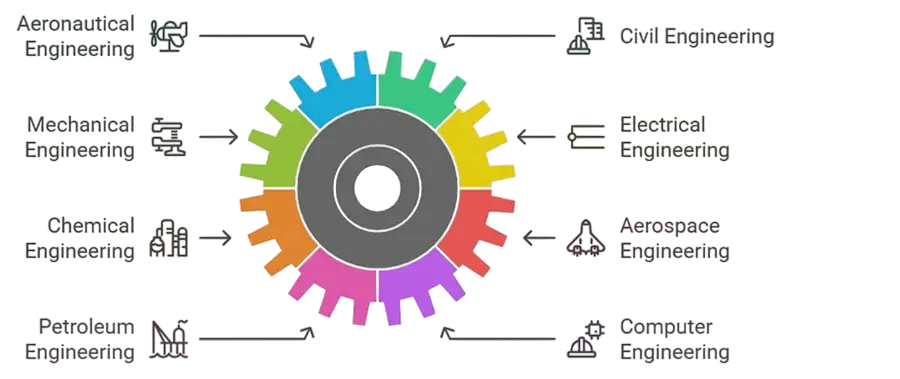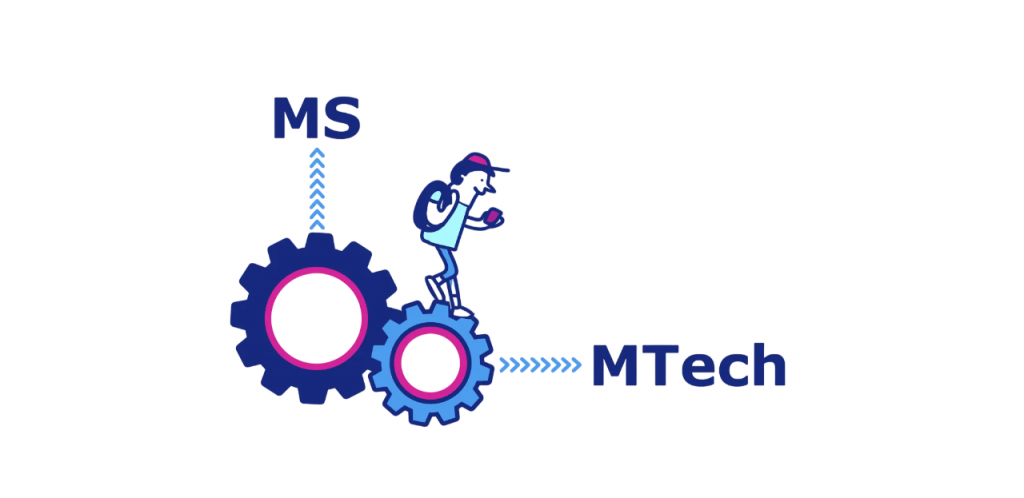
- MS vs MTech : Key Insight
- Meaning of MS and MTech
- Academic Focus Comparison
- Duration and Structure
- Admission Requirements
- Popular Countries/Colleges
- Career Opportunities
- Research Scope
- Industry vs Academia Goals
- Salary Comparison
- Which One to Choose?
- Conclusion
MS vs MTech : Key Insight
In the realm of postgraduate education, students often find themselves comparing two prominent degrees: Master of Science (MS) and Master of Technology (MTech). Both are respected and widely pursued across the globe by engineering and science graduates who wish to specialize further in their domains, especially in emerging fields like Data Science course . However, choosing between these two requires a comprehensive understanding of their structure, academic focus, career prospects, and suitability based on individual goals. This essay provides a thorough comparison of MS and MTech to help aspirants make informed decisions aligned with their professional aspirations.
Meaning of MS and MTech
MS, or Master of Science, is an internationally recognized postgraduate degree primarily offered in countries like the USA, UK, Germany, and Canada. It typically focuses on advanced theoretical and practical knowledge in the fields of science, technology, engineering, and mathematics (STEM). Students have options to specialize in areas like Computer Science, Electrical Engineering, Data Science, Artificial Intelligence, and more. For students hoping to specialise in engineering or technology, selecting between Master of Science (MS) and MTech is crucial, especially when considering emerging fields like Data Science vs Cloud Computing . Globally recognised and usually research-focused, a Master of Science offers prospects in industries such as software engineering, artificial intelligence, and data science.

MTech, or Master of Technology, is predominantly offered in countries like India and is a technical postgraduate degree focusing on engineering and technology. It is more practice-oriented and tailored toward providing in-depth knowledge in a specific engineering discipline, such as Mechanical, Civil, Electrical, or Computer Engineering.
Do You Want to Learn More About Data Science? Get Info From Our Data Science Course Training Today!
Academic Focus Comparison
The core difference between MS and MTech lies in their academic orientation. MS programs are generally research-focused, aiming to develop strong analytical and research skills.
- Knowing the distinctions between an MS and an MTech is crucial when selecting between postgraduate engineering degrees.
- Whether a student wants to pursue academics or industry, comparing these postgraduate engineering degrees helps them match their objectives with the appropriate programme.
- In the end, your career goals, desired study setting, and admission requirements will determine which postgraduate engineering degrees best suits you.
These programs encourage students to engage in original research and often require the submission of a thesis.In contrast, MTech programs tend to be application-driven, focusing more on professional and technical training. They emphasize coursework, lab work, and project implementation over research. While some MTech programs may offer research opportunities, the emphasis is less compared to MS programs, which becomes especially relevant when understanding the Differences Between Data Scientist vs Data Analyst roles in terms of research and analytical depth.
Duration and Structure
The duration of an MS program varies depending on the country and university, typically ranging from 1.5 to 2 years. The structure usually includes core courses, electives, a research project, and a thesis. In some countries, particularly the USA, students can choose between a thesis-based and a non-thesis-based MS. MTech programs in India generally span 2 years and are divided into 4 semesters. The curriculum comprises theoretical subjects, practical lab sessions, and a final semester project or dissertation. The structure is relatively rigid, with fewer elective choices compared to MS programs.
Would You Like to Know More About Data Science? Sign Up For Our Data Science Course Training Now!
Admission Requirements
Admission to MS programs abroad usually requires a relevant undergraduate degree, a strong academic record, letters of recommendation, a statement of purpose (SOP), and standardized test scores such as GRE (Graduate Record Examination) and TOEFL/IELTS (for English proficiency).
- The purpose of this study is to investigate how social media affects student productivity. The research scope focus is on 18–25-year-old college students, and it looks at how various platforms impact time management and study habits.
- The study guarantees that only pertinent data is gathered by precisely specifying the research scope, which produces more accurate findings.
For MTech programs in India, the most common entry route is through competitive exams like GATE (Graduate Aptitude Test in Engineering). Students are admitted based on their GATE scores, and some institutions may also conduct interviews or counseling sessions, often influenced by industry trends such as the Report on Salary Structure of Data Scientist , which highlights the growing demand for specialized skills.
Popular Countries/Colleges
For MS aspirants, popular destinations include:
- USA: Massachusetts Institute of Technology (MIT), Stanford University, University of California, Berkeley
- UK: University of Oxford, University of Cambridge, Imperial College London
- Germany: Technical University of Munich, RWTH Aachen University
- Canada: University of Toronto, University of British Columbia
- Indian Institutes of Technology (IITs)
- National Institutes of Technology (NITs)
- Indian Institute of Science (IISc)
For MTech aspirants in India, leading institutions include:
These institutions are known for their rigorous academic standards and offer excellent opportunities in engineering and technology fields.
Career Opportunities
An MS degree opens up global opportunities in academia, research, and industry. Graduates often find roles as research scientists, data analysts, software developers, machine learning engineers, and university lecturers. Many MS graduates also pursue PhDs and engage in cutting-edge research. MTech graduates, on the other hand, are well-suited for roles in core engineering industries, public sector undertakings (PSUs), IT companies, and government organizations. Job roles include systems engineer, design engineer, project manager, and consultant. Though international opportunities exist, MTech graduates typically work in India or neighboring countries, often leveraging skills gained through Data Science course.
Research Scope
Research is a significant component of MS programs, particularly in countries like the USA and Germany where students work in university labs, collaborate with industry experts, and publish papers. This foundation prepares students for doctoral studies and R&D roles in organizations like Google, IBM, and NASA.

While MTech programs also include a research component, especially in premier institutes like IITs and IISc, it is usually limited to the final semester. The focus remains more on application than innovation. Nevertheless, those inclined towards research can pursue PhDs post-MTech.
Gain Your Master’s Certification in Data Science Training by Enrolling in Our Big Data Analytics Master Program Training Course Now!
Industry vs Academia Goals
If one’s goal is to enter academia or engage in high-level research, MS is generally more suitable. The exposure to international research, interdisciplinary learning, and access to modern labs positions MS graduates well for academic and R&D careers.
- MTech is more suited for positions in the industry where engineering expertise and real-world application are valued. MTech may be more pertinent for students who want to succeed in technical roles in businesses or who want to appear for competitive tests for government jobs.
- MTech programmes frequently emphasise industry-focused projects and applied skills, preparing graduates to take on real-world engineering difficulties.
- Additionally, MTech programmes frequently have solid relationships to regional businesses, which improves internship and employment placement prospects. Because of this, MTech is a sensible option for people looking for steady employment in the public sector or engineering fields.
MTech is better aligned with industry roles where practical implementation and engineering skills are valued, especially for those Exploring Machine Learning and its real-world applications. Students looking to excel in technical positions within companies or take competitive exams for government jobs may find MTech more relevant.
Salary Comparison
MS graduates, especially those working in developed countries, tend to have higher salary packages. For instance, an MS graduate in Computer Science from the USA can earn anywhere between $80,000 to $120,000 annually, depending on skills and experience. Additionally, international work experience enhances long-term earning potential. MTech graduates in India earn competitive salaries in core industries, ranging from INR 6 to 12 lakhs per annum in top firms. Salaries in PSUs and government roles are fixed based on pay grades but come with job security and benefits.
Preparing for Data Science Job? Have a Look at Our Blog on Data Science Interview Questions & Answer To Acte Your Interview!
Which One to Choose?
The choice between MS and MTech depends on multiple factors:
- Location Preference: If studying abroad is a goal, MS is the natural choice.
- Career Goals: For global research and academic careers, MS is ideal; for industry roles in India, MTech suffices.
- Financial Considerations: MS can be expensive due to international tuition and living costs, whereas MTech is relatively affordable, making it an attractive option for those Exploring MTech in AI and ML within a budget-friendly framework.
- Admission Criteria: MS requires GRE and English proficiency tests, while MTech needs a strong GATE score.
- Flexibility and Exposure: MS offers more flexibility in course selection and global exposure, while MTech provides structured learning with localized industry alignment.
Conclusion
Both MS and MTech offer valuable educational experiences and career opportunities, but they cater to different ambitions and contexts. MS is more suitable for those aiming for international exposure, academic research, or cutting-edge roles in tech industries abroad. MTech, with its structured and practice-oriented approach, is ideal for those seeking engineering careers within India or pursuing technical government roles, especially when combined with Data Science course.Ultimately, the right choice depends on individual goals, resources, and long-term vision. A careful assessment of one’s interests, strengths, and professional objectives can lead to a fulfilling and successful postgraduate journey.


